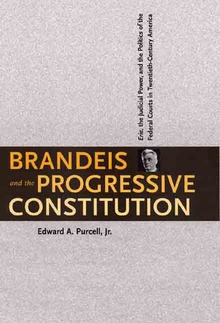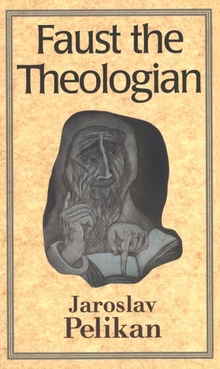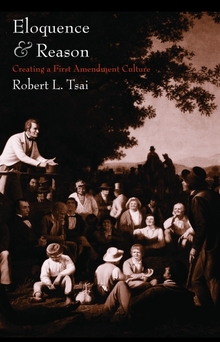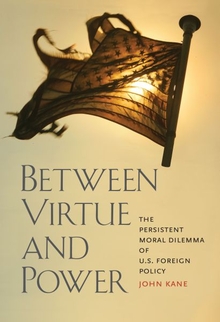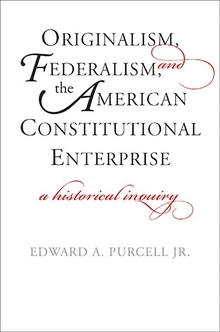Brandeis and the Progressive Constitution
WARNING
You are viewing an older version of the Yalebooks website. Please visit out new website with more updated information and a better user experience: https://www.yalebooks.com
Erie, the Judicial Power, and the Politics of the Federal Courts in Twentieth-Century America
Edward Purcell
Examining the social origins and intended significance of the Erie decision, Purcell concludes that the case was a product of early twentieth-century progressivism. The author explores Brandeis’s personal values and political purposes and argues that the justice was an exemplar of neither “judicial restraint” nor “neutral principles,” despite his later reputation. In an analysis of the continual reconceptions of both Brandeis and Erie by new generations of judges and scholars in the twentieth century, Purcell also illuminates how individual perspectives and social pressures combined to drive the law’s evolution.
"Elegant writing . . . impressive research base, Brandeis and the Progressive Constitution is a must read for anyone interested in twentieth-century American constitutional history."—K. C. Johnson, H-Net Reviews
“Purcell treats the Erie case as a vital junction in American legal thought and practice. He takes us down the forgotten roads leading in and the fascinating roads leading out. Brandeis and the Progressive Constitution is both a model study of a single Supreme Court decision and a major reinterpretation of the changing nature of constitutional governance in 20th-century America. It is impressive in every way."—Charles W. McCurdy, University of Virginia
“Purcell treats Erie with a rigor and depth approached by no other historical account. This book is destined to occupy an important place in the constitutional-historical literature.”—Clyde Spillenger, UCLA School of Law
"Long ago Alexis de Tocqueville observed that more than any people in the world Americans were governed by judges. A pioneering public interest lawyer and reform-mind Supreme Court Justice, Louis D. Brandeis epitomized the faith that the Constitution’s grant of judicial authority should be used to benefit society. Purcell’s probing study shows how Brandeis’ Progressive judicial vision not only represented a genuine alternative to the Supreme Court’s pro-big business decisionmaking before the New Deal, but also shaped, often in surprising ways, the course of twentieth-century American democracy. This is one of those rare books which reveals the soul of American constitutional governance."—Tony A. Freyer, author of Harmony and Dissonance: The Swift & Erie Cases in American Federalism, University of Alabama University Research Professor of History and Law
"In Brandeis and the Progressive Constitution, Edward A. Purcell provides an exemplar of the intellectual history of the law. Masterly in its handling of primary sources for judicial power, this study traverses jurisprudential theory and twentieth-century legal history with confident assurance. Purcell illuminates the arcane area of federal jurisdiction with a virtuoso shower of insights that will delight lawyers and historians alike, endowing the subject with a significance and interest that will surprise the lay reader. This book is nothing less than the single most important monographic study of federal judicial power since Frankfurter and Landis’s The Business of the Supreme Court appeared in 1928."—William M. Wiecek, Congdon Professor of Law and Professor of History, Syracuse University
“Purcell’s strong analysis of new aspects of Brandeis’s jurisprudence and the importance of Erie concerning federalism, judicial lawmaking, and the separation of powers in the American constitutional framework is highly recommended for individuals interested in American history and the development of constitutional ideas.”—Library Journal
“Purcell ably demonstrates that there existed a causality between the power of the federal courts and the strength of the American corporation. . . . [An] outstanding book.”—William E. McSweeney, The Lawyer’s Bookshelf
“Edward Purcell Jr.’s excellent new book uses the case of Erie Railroad Co. V. Tompkins . . . as a prism to trace the development of federal jurisdiction and its central role in our federal system since 1938.”—Choice
“This book is a subtle, well-researched, and exquisitely detailed analysis of the ERIE case and the complex process of constitutional change. . . . This book is a prizewinner. . . . It will be of interest to political scientists, legal scholars, and historians of American politics who are interested in the relationship of law and politics.”—Ronald Kahn, Law and Politics Book Review
“This masterful book focuses on Justice Brandeis’s opinion in Erie v. Tompkins. . . . However, this volume is much more; it is a penetrating study of the philosophy of Justice Louis Brandeis. More generally, it is an insightful account of Progressive-Era law and politics and the important role Brandeis had in this process. . . . A stunning tour de force that will be of great interest to all students of the history of 20th-century American law and politics. Highly recommended for general readers, undergraduates, graduate students, faculty, and practitioners.”—Choice
“A carefully researched, informative account of Brandeis and his era—one that should prove particularly useful to historians of the labor movement. The work also constitutes a major new force in the debate over Erie.”—Ronald J. Pestritto, Labor History
Publication Date: February 9, 2000

